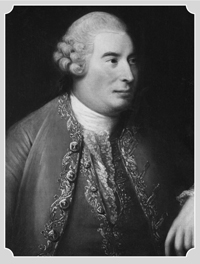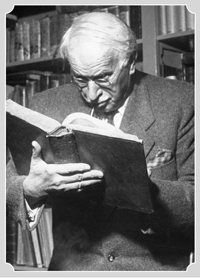
David Hume (1711–76), popularly known for his philosophy of scepticism
‘The spirit world shuts not its gates;
Your heart is closed, your senses sleep’
Goethe
THIS BOOK is different from the usual collection of ‘true’ ghost stories. Although it offers a comprehensive history of spectral sightings from ancient times to the present day and covers apparitions in every conceivable setting, it does not argue the case for or against the existence of ghosts, but accepts apparitions as a natural phenomenon. Ghosts are a fact, but not all ghosts are discarnate spirits of the departed. The distinction is important and, as will be clear from the examples given in the following pages, goes to the core of explaining the nature of the phenomenon.
The reason for my unqualified conviction is not blind faith or wishful thinking, but personal experience. Since childhood I have had involuntary out-of-body experiences that are distinctly different from the most lucid of dreams and these have convinced me that our physical world is not the only reality. It was self-evident to me that we are, in essence, spiritual beings inhabiting a physical body and that we can be temporarily released from this shell when we attain a state of deep relaxation, during sleep, when under anaesthetic or at moments of extreme physical or emotional crisis.
I have had the privilege of working with many gifted ‘sensitives’ in my psychic development workshops. I have witnessed several remarkable demonstrations of mediumship at first hand by well known and highly respected personalities such as Derek Acorah, Colin Fry, ‘psychic detective’ Chris Robinson and psychic surgeon Stephen Turoff. I have also interviewed many gifted individuals such as the healer Betty Shine and American ‘psychic spy5 Major David Morehouse, all of whom added to my understanding.

David Hume (1711–76), popularly known for his philosophy of scepticism
As I have explored the world of the supernatural I have become increasingly fascinated by what these phenomena reveal about our true nature and the greater reality of which we are a part, rather than by the phenomena themselves. What I hope distinguishes this book from others on the subject is an understanding that ghosts are not the chain-rattling spooks of lurid supernatural fiction, but something far more interesting. It will become evident from the many intriguing cases described in these pages that ghosts are not a single, specific phenomenon but cover a wide range of paranormal activity, each revealing another aspect of our latent psychic faculties and cultural conditioning.
We are naturally inclined to disbelieve anything outside our personal experience unless a case can be made for its existence on rational grounds. The root of Western scepticism towards all aspects of the supernatural is based on a fallacy expressed in the empiricist philosophy of David Hume (1711–76) who argued that only that which can be perceived through the senses should be accepted as real. He denied the possibility of miracles, for example, by loading the question even more cynically than might a modern politician. He asked whether it was more likely that witnesses would lie, or that the laws of nature would be violated? Hume failed to understand that paranormal phenomena do not violate or contradict nature; the supernatural is an extension of the natural world and conforms to universal laws.

Psychoanalyst Carl Jung (1875–1961) who, together with his teacher and mentor Sigmund Freud, and Alfred Adler, formed the basis of modern psychology and psychotherapy
Those who deny the evidence of such phenomena on principle would do well to consider the view of Carl Jung, the founding father of modern analytical psychology who expressed his belief in spirits in a letter to a friend:
‘I once discussed the proof of identity for a long time with a friend of William James, Professor Hyslop in New York. He admitted that all things considered, all these metaphysic phenomena could be explained better by the hypothesis of spirits than by the qualities and peculiarities of the unconscious. And here, on the basis of my own experience, I am bound to concede he is right. In each individual case I must of necessity be sceptical, but in the long run I have to admit that the spirit hypothesis yields better results in practice than any other.’
In this book, I hope you will find answers to the most persistent questions regarding the nature of spirits rather than the vague and inconclusive statements which have tainted many previous investigations. I am not concerned here with the age-old argument for or against the existence of life after death as surely only the most stubborn sceptic would argue against the wealth of compelling experiential evidence on offer here and elsewhere. The more pressing question is whether we can shrug off the negative image we have of ghosts as malevolent entities created by centuries of superstition and lurid horror fiction and instead accept them simply as discarnate personalities on the other side of life. If this volume can contribute to a more commonsense approach to the supernatural and encourage even one person to lose their fear of the unknown then it will have served its purpose.
‘Sit down before fact as a little child, be prepared to give up every preconceived notion, follow humbly wherever and to whatever abysses nature leads or you shall learn nothing.’
Thomas Henry Huxley on the duty of a scientist, 1860